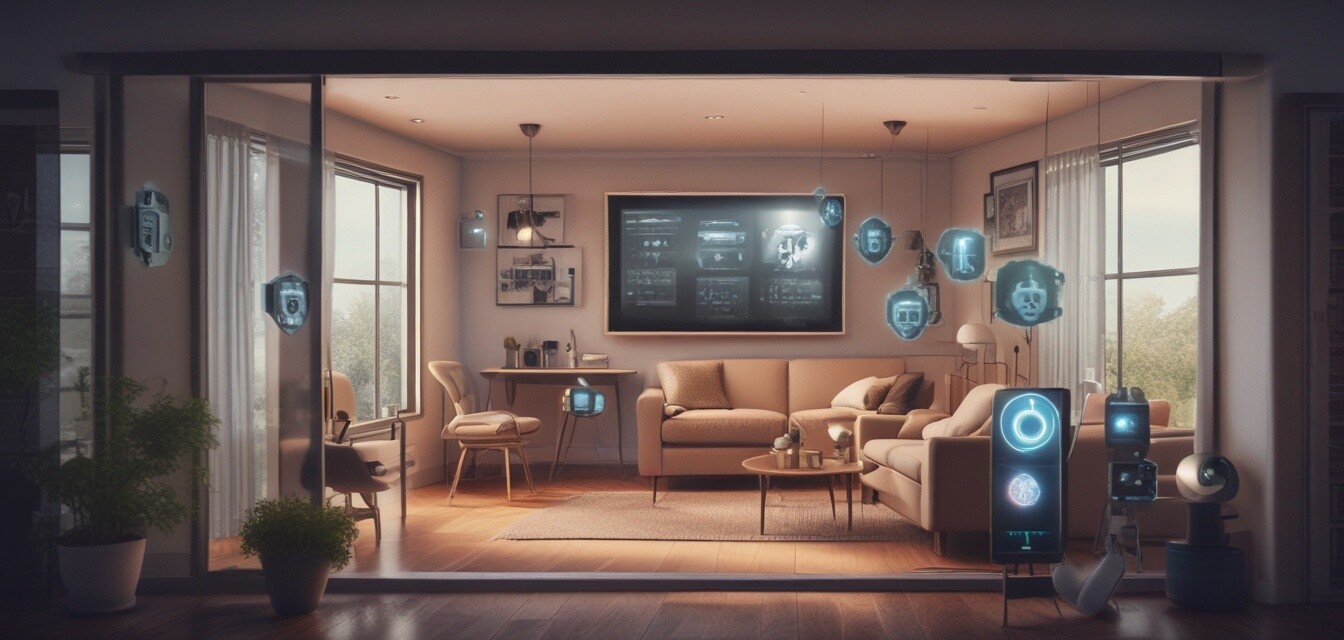
Understanding the Role of AI in Smart Security
Key Takeaways
- AI enhances real-time monitoring and response capabilities.
- Smart security systems can learn from user behavior to improve safety.
- Automation and advanced analytics provide better insights into security threats.
- Integration of AI in smart locks and cameras increases overall efficacy.
- The future of home security will see continued advancements in AI technologies.
Artificial Intelligence (AI) has become a cornerstone of modern technology, revolutionizing various sectors, including home security systems. The integration of AI into smart security features enhances the safety of households and empowers homeowners to take proactive measures. This article explores how AI is shaping smart home security features and improving response capabilities for household security.
The Impact of AI on Smart Home Security
AI has brought significant improvements in how we approach home security. By utilizing machine learning, pattern recognition, and other AI functionalities, smart security systems can adapt to user behaviors, predict potential threats, and enhance overall safety. Below are some key areas where AI is making a difference:
- Real-time monitoring: AI algorithms continuously analyze footage from surveillance cameras, allowing for quicker detection of any unusual activity.
- Facial recognition: Advanced AI systems can identify family members and differentiate them from unfamiliar faces, reducing false alarms.
- Smart alerts: Homeowners receive notifications about potential threats, such as motion detection when no one is expected home.
- Analytics and insights: AI processes historical data to recognize patterns, helping users understand potential vulnerabilities.
How AI Enhances Household Security Features
The following table outlines the key security features enhanced by AI technology:
| Security Feature | AI Enhancement |
|---|---|
| Surveillance Cameras | Real-time analysis of footage and automated threat detection |
| Smart Locks | Remote access controls integrated with AI for user access history |
| Motion Sensors | Adaptive detection algorithms that minimize false alerts |
| Alarm Systems | Customizable alerts based on user behavior and routines |
Automation and AI Integration
Automation driven by AI allows homeowners to customize their security setups further. Smart home systems can learn user routines and automate the security parameters accordingly. For example:
- Setting up alerts for when a security breach is detected.
- Adjusting the settings of cameras based on time of day.
- Integrating with other smart home devices for coordinated responses.
As homeowners become more familiar with AI technology, they can expect an even more seamless integration of AI in various devices. If you're looking for the latest home automation devices, check out our complete guide on home automation devices.
Challenges and Concerns of AI in Security
Despite the many advantages, there are also concerns surrounding the use of AI in smart security:
Pros
- Improved detection accuracy and reduced reaction times.
- Greater user control and customization options.
- Automated threat response features enhancing overall security.
Cons
- Potential privacy issues with data collection and facial recognition.
- Dependency on technology, which may fail during power outages.
- Vulnerability to hacking and cyber threats.
The Future of AI in Home Security
As technology continues to evolve, AI will likely play a more integral role in the landscape of home security. Consumers can expect:
- Enhanced predictive capabilities to anticipate threats before they occur.
- More robust integration of AI with IoT devices for smarter homes.
- Development of standards and regulations to protect consumer data and privacy.
For those interested in keeping their homes secure with the latest technology, it's essential to stay informed. Visit our blog on tips and best practices for insights on maintaining a secure home environment.
Conclusion
The role of AI in smart security cannot be understated. From automating routine monitoring processes to enhancing real-time decision-making, AI is reshaping how homeowners protect their properties. By understanding these advancements, consumers can make better choices for their home security needs.
To explore more about the latest trends and products in smart home security, check our sections on news and trends and smart cameras to keep your home secure and up-to-date.
